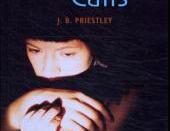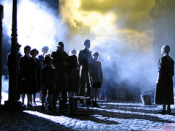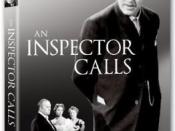SECTION ONE PAST, PRESENT AND FUTURE i. TIME AND THE BIRLINGS An awareness of time is central to the study of any play. As designer, Ian MacNeil points out:"I think that any play does in fact exist in many time zones - any piece of work does. The chances are it exists in three time zones. There is the time in which it was written; there is the time which it refers to consciously; and there is the time in which it is being read or watched."ÃÂ An example would be Shakespeare's Henry V which was written in 1599, is set around 1415 and is still being performed today. A student or a director approaching the play in 1999 will have to ask why, at the end of the sixteenth century, Shakespeare was engaging with events from the beginning of the fifteenth century. The director will also have to examine what the play means to audiences watching it in 1999.
The same is true for An Inspector Calls. When first staging the play for the Royal National Theatre in 1992, director, Stephen Daldry, and his creative team had to ask themselves the same questions. Why was the play written when it was - in a single week during the winter of 1944/45? Why did Priestley set it in the Edwardian past, around thirty years previously but well within living memory? And, above all, why should the play still engage and entertain audiences at the end of the millennium? J.B.Priestley himself was fascinated by theories of time. Through his reading of the works of the mathematician J.W.Dunne and the Russian mystic Peter Ouspensky, he arrived at his own theory of how we experience time. Priestley, as Ian MacNeil explains, "believed that time is not experienced by linear means; that we experience...


